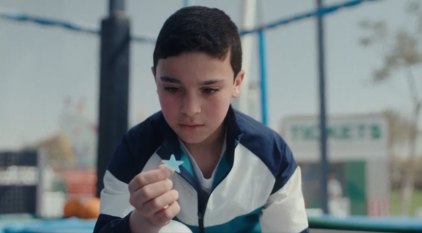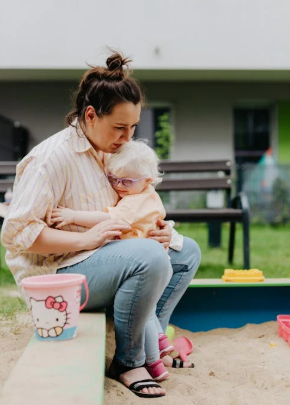إيذاء النفس واضطراب الشخصية الحدية: فهم أعمق وعلاج فعّال اضطراب الشخصية الحدية هو نوع من الاضطرابات النفسية الصعبة اللي بيكون فيها الشخص متقلب المزاج بشكل كبير، وبيواجه مشاكل في علاقاته مع الناس، وبيتصرف أحيانًا بشكل اندفاعي من غير ما يفكر. من أكتر الحاجات اللي بتظهر في الاضطراب ده هي إيذاء النفس، وده بيحصل عند حوالي 65–80% من الناس اللي عندهم الاضطراب، كطريقة للتعامل مع الضغط أو الفراغ اللي بيحسوا بيه. أسباب إيذاء النفس في اضطراب الشخصية الحدية اللي بيحصل إن الشخص ما بيعرفش ينظم مشاعره، وده بيخليه يدور على أي طريقة يخفف بيها التوتر أو يعاقب نفسه. بس مش شرط إن إيذاء النفس يعني إن الشخص عايز ينتحر، ساعات بيكون مجرد محاولة منه يفهم نفسه أو يهرب من وجع داخلي. العلاج النفسي العلاج بالكلام هو الأساس في التعامل مع اضطراب الشخصية الحدية. فيه نوع اسمه العلاج السلوكي الجدلي (DBT) وده فعال جدًا، لأنه بيعلم الشخص إزاي يتحكم في مشاعره، ويقلل من تصرفاته المؤذية، ويحسّن علاقاته. ساعات الدكاترة كمان بيوصفوا أدوية زي مضادات الاكتئاب أو مثبتات المزاج عشان يساعدوا على تخفيف الأعراض. استراتيجيات المساعدة الذاتية يمكن للمصابين باضطراب الشخصية الحدية اتباع بعض الاستراتيجيات الذاتية التي تساعد في إدارة الأعراض، مثل: · ممارسة التأمل واليقظة الذهنية: بيساعد في زيادة الوعي بالمشاعر والأفكار، وده بيقلل من السلوكيات الاندفاعية. · تدوين المشاعر: كتابة اليوميات ممكن تساعد في التعرف على الأنماط السلوكية والمحفزات العاطفية. · ممارسة الهوايات: الانخراط في أنشطة ممتعة بيخفف من التوتر ويحسن الحالة المزاجية. العلاج الدوائي ما فيش دواء مخصص للاضطراب ده، لكن ممكن الدكتور يوصف أدوية حسب الحالة. الأدوية بتساعد في تهدئة التقلبات المزاجية، القلق، الاكتئاب، أو حتى السلوكيات الخطيرة. وبتكون مفيدة خصوصًا لما الشخص بيعاني من الحالات المتزامنة مع اضطراب الشخصية الحدية، مثل الاكتئاب والقلق، واضطرابات الأكل، وتعاطي المخدرات، والاضطراب ثنائي القطب، وتقليل خطر الانتحار. الدعم الأسري والمجتمعي الدعم مهم جدًا. لو الأهل والأصحاب بيفهموا الاضطراب ده، هيقدروا يساعدوا ويوفروا بيئة فيها أمان وراحة. كمان المجموعات الداعمة أو الأنشطة الاجتماعية بتدي إحساس إن الشخص مش لوحده. التشخيص بدري والمتابعة في العلاج يفرقوا جدًا في حياة الشخص. كل ما العلاج بدأ بدري، كل ما كان فيه فرصة أحسن لبناء حياة مستقرة وعلاقات صحية. علشان تعرف أكتر عن اضطراب الشخصية الحدية وإزاي تقدر تتعامل معاه، أو تدعم حد تعرفه بيعاني من اضطراب الشخصية الحدية، تقدر تحجز جلسة مع أحد خبراء واستشاريين اسأل النفسيين من خلال اللينك: https://esaal.me/ar/online-consultation?CatId= Read More


فهم اضطراب الشخصية الحدية: الأعراض والأسباب والعلاج مقدمة: اضطراب الشخصية الحدية BPD) - Disorder Personality (Borderline من الاضطرابات النفسية المعقدة التي تؤثر على طريقة التفكير، والمشاعر، والعلاقات، والسلوك بشكل عام. قد يعيش المصاب بهذا الاضطراب تقلبات حادة في المزاج، وصعوبات في تنظيم مشاعره، وشعور دائم بالفراغ، مما ينعكس على علاقاته الاجتماعية واستقراره النفسي ثانيًا: الأعراض الشائعة: تختلف الأعراض من شخص لآخر، لكن من أبرزها: .1 الخوف المفرط من الهجر أو الرفض، حتى في العلاقات العادية. .2 العلاقات المتقلبة: الانتقال السريع بين المثالية والتقليل من شأن الآخرين. .3 اضطراب في الهوية: شعور مشوش تجاه الذات والأهداف والقيم. .4 سلوكيات اندفاعية: مثل الإنفاق المفرط، الجنس غير الآمن، الأكل المفرط أو الإدمان. .5 نوبات غضب شديدة وغير مبررة .6 مشاعر فراغ مزمنة. .7 إيذاء النفس أو التفكير الانتحاري المتكرر. .8 تقلبات مزاجية سريعة قد تستمر لساعات قليلة فقط. .9 صعوبة في ضبط العلاقات أو فهم الحدود الشخصية والاجتماعية. ثالثًا: الأسباب المحتملة: لا يوجد سبب واحد مباشر، بل هو تفاعل عدة عوامل، منها: الوراثة: قد تلعب العوامل الجينية دورًا في زيادة القابلية للإصابة. البيئة: مثل التعرض لصدمات الطفولة، الإهمال العاطفي، أو الاعتداء الجسدي/الجنسي. العوامل العصبية: وجود اختلافات في مناطق معينة من الدماغ تتحكم في الانفعالات واتخاذ القرار. رابعًا: التشخيص: يُشخّص الاضطراب من خلال تقييم متخصص في الصحة النفسية، ويعتمد على المقابلات السريرية، التاريخ النفسي، والسلوكيات الظاهرة. لا يُشخّص عادة في مرحلة الطفولة، بل بعد نضوج الشخصية نسبيًا. خامسًا: العلاج: رغم صعوبة التعامل مع هذا الاضطراب، إلا أن العلاج يساعد بشكل فعّال، ومن أبرز الطرق: .1 العلاج السلوكي الجدلي :(DBT) يُعد من أنجح الأساليب في تقليل الانفعالات وتحسين العلاقات. .2 العلاج المعرفي السلوكي :(CBT) يساعد في تعديل أنماط التفكير السلبية .3 العلاج الدوائي: لا يعالج الاضطراب مباشرة، لكن يمكن أن يساعد في التخفيف من أعراض الاكتئاب أو القلق المصاحبة. .4 العلاج الأسري: يساهم في توعية الأسرة بكيفية التعامل مع المريض وتقديم الدعم المناسب. .5 الدعم الذاتي والمجتمعي: الانخراط في مجموعات دعم قد يعطي شعورًا بعدم العزلة والانتماء. سادسًا: نظرة مستقبلية: مع الالتزام بالعلاج والدعم الصحيح، يمكن للمصابين باضطراب الشخصية الحدية أن يعيشوا حياة مستقرة ومرضية. من المهم الفهم والتعاطف، لا الحكم والرفض، فكل شخص يستحق أن يُحتوى ويفهم، لا سيما من يواجه اضطرابًا معقدًا كهذا خاتمة: اضطراب الشخصية الحدية ليس ضعفًا في الشخصية ولا فشلًا في الإرادة، بل هو تح „د نفسي يحتاج إلى وعي، ودعم، وعلاج متكامل. كل خطوة تجاه الفهم والاحتواء تُحدث فرقًا كبيرًا في حياة المصاب Read More

(BPD) Borderline Personality disorder يعرف اضطراب الشخصية الحدية يقصد بإضطراب الشخصية الحدية في الدليل التشخيصي الرابع والخامس بأنها سلوكيات ثابتة تتسم بالانحراف عن السلوك السوي ، حيث يدرك الفرد ذاته والاخرين والاحداث بطريقة غير متماثلة لأفراد الثقافة التى يعيش فيها الفرد وتتسم سلوكياتة بالانفعال الشديد وعدم تناسبها مع المواقف والاحداث والاشخاص الذين يتعاملون معه كما يتسم بعلاقات سيئة ومتوترة دائما مع الاخرين كما أن الفرد لا يستطيع ايقاف إندفاعاتة اوتهوراتة أو عدوانة تجاة نفسه وتجاة الاخرين . فإضطراب الشخصية الحدية هو اضطراب شديد، و يتميز بخلل في التنظيـم الوجداني، والشعور بعدم استقرار الذات، وصعوبة في العلاقات الشخصية، ويكون مصحوبا بمحاولة انتحار التفكير في الانتحار( و إيذاء الذات). عادة ما يبدأ اضطراب الشخصية الحَدّية مع بداية مرحلة البلوغ. ويزداد سوءًا في مرحلة الشباب. وغالبًا ما تتحسن التقلبات المزاجية والغضب والاندفاع مع تقدم العمر. لكن تستمر المشكلات الرئيسية المتعلقة بنظرة الشخص إلى نفسه والخوف من الهجر وكذلك مشكلات العلاقات. المسببات قد تسهِمُ الجينات والعوامل البيئيّة في حدوث اضطراب الشخصية الحدّية ويمكن أن يكون لدى بعض الأشخاص ميل وراثي إلى الاستجابة بشكل سيئ لضغوط الحياة، ممّا يجعلهم أكثر ميلًا للإصابة باضطراب الشخصية الحدي، بالإضافة إلى الاضطرابات النفسية الأخرى.كما يميل اضطرابُ الشخصية الحديه أيضًا إلى الانتشار في العائلات، ممّا يشير إلى أن هذا الميل قد يكون موروثًا جزئيًا قد تُسهِمُ التجارب المجهدة في أثناء مرحلة الطفولة المبكِّرة في الإصابة باضطراب الشخصية الحديّ.تعرَّض الكثير من الأشخاص الذين يعانون من اضطراب الشخصية الحديّ إلى الاعتداء الجسدي أو الجنسي، أو فُصلوا عن مقدِّمي الرعاية، أو فقدوا أحد الوالدين عندما كانوا أطفالاً.يُسهم غياب أمان ارتباطهم بمقدمي الرعاية في أعراض اضطراب الشخصية الحدي. يذكر مرضى اضطراب الشخصية الحَدِّيَّ غالبًا أنّهم تعرضوا إلى الإهمال أو إساءة المعاملة في الطفولة الخوف من الهجر أو التخلّي يخشى المرضى الذين يعانون من اضطراب الشخصية الحديَ من التخلّي عنهم، ويعود ذلك جزئيًا إلى أنَّهم لا يريدون أن يكونوا بمفردهم.وفي بعض الأحيان، يشعرون بأنَّهم غير موجودين على الإطلاق، عندما لا يكون لديهم شخص يهتم بهم غالبًا. ويشعرون بالفراغ الداخلي غالبًا عندما يشعر الأشخاص الذين يعانون من هذا الاضطراب بأنهم على وشك التخلّي عنهم، يصبحون خائفين وغاضبين عادةً؛فعلى سبيل المثال، قد يصبحون مذعورين أو غاضبين عندما يتأخر شخص مهم بالنسبة إليهم لبضع دقائق أو يقوم بإلغاء موعده.وهم يفترضون أنَّ هذه الأخطاء ناجمة عن شعور الشخص تجاههم، وليس بسبب ظروف غير مرتبطة بالأمر.وقد يعتقدون بأنّ المناسبة الاجتماعية الملغاة تعني أن الشخصَ الآخر يرفضهم وأنهم سيّئون.تدلّ شدة ردَّة الفعل لديهم على حساسيَّتهم تجاه الرفض يمكن للمرضى الذين يعانون من اضطراب الشخصية الحدي أن يتعاطفوا مع شخص آخر ويهتموا به، ولكن فقط إذا شعروا بأنّ شخصًا آخر سيكون موجودًا عندَ الحاجة.وعلى الرغم من أنّهم يرغبون في وجود علاقات حميمة ورعاية من الآخرين، إلا أنّه من الصعب عليهم الحفاظ على علاقات مستقرّة.ويميلون إلى أن تكون لديهم توقعات عالية جدًّا حولَ الطريقة التي ينبغي على الأشخاص الذين يشعرون بالقرب منهم أن يتصرّفوا بها، وقد تتقلب مشاعرهم حول العلاقة بسرعة وبشكل شديد. تتضمّن أعراض اضطراب الشخصيّة الحدّية الأعراض يؤثر اضطراب الشخصية الحَدّية في شعورك تجاه نفسك وتعاملك مع الآخرين وتصرفاتك بشكل عام. الخوف الشديد من الهجر. يتضمن ذلك التصرف بشكل يتجاوز حد الاعتدال خوفًا من التعرض للانفصال أو الرفض، حتى إذا كان ذلك الخوف مختلقًا. نمط غير مستقر من العلاقات العاطفية، كالاقتناع بأن شخصًا ما مثالي وفي اللحظة التالية الاقتناع بأنه شخص مهمل أو قاسٍ. التغيرات السريعة في الطريقة التي ترى بها نفسك. يتضمن ذلك تغيير الأهداف والقيم، بالإضافة إلى رؤية نفسك بصورة سيئة أو كما لو أنك غير موجود. فترات من جنون الارتياب أو فقدان الاتصال مع الواقع بسبب الإجهاد. قد تستمر هذه الفترات من بضع دقائق إلى بضع ساعات. التصرفات الطائشة والمندفعة، كالمقامرة، أو القيادة بتهور، أو ممارسة الجنس غير الآمن، أو الإسراف، أو تناوُل الطعام بشراهة أو إساءة استخدام الأدوية، أو القضاء على نجاحك بالاستقالة من وظيفة جيدة أو إنهاء علاقة ناجحة. التهديد بالانتحار أو أذية النفس، غالبًا نتيجة الخوف من الفراق أو الرفض. التقلبات المزاجية الكبيرة التي تستمر من بضع ساعات إلى بضعة أيام. من الممكن أن تنطوي هذه التقلبات المزاجية على فترات من سرعة الانفعال أو الشعور بالسعادة أو القلق أو العار بشكل بالغ. الشعور الدائم بالخواء. الغضب الشديد غير المقبول، مثل فقدان الأعصاب في أغلب الأحيان أو السخرية أو التهكم أو المشاجرة الجسدية. ويصاحبه غالباً الاكتئاب أو القلق أو الغضب. ومن أكثر أعراض اضطراب الشخصيّة الحدّي تميّزاً هي الحساسيّة تجاه الرفض الاجتماعي، والأفكار والمخاوف من أن يُلفظ ذاك الشخص من قبل المجتمع. ويمكن أن يتعدّى الأمر إلى حدوث اضطرابٍ في مفهوم الهويّة والقيم الذاتيّة، بحيث يمكن أن ترد أفكار جنون الارتياب عند الشعور بالتوتّر، بالإضافة إلى شعورٍ بالتفارق. المشاعر يشعر المصابون باضطراب الشخصية الحدّي بالمشاعر النفسيّة شعوراً أسهلَ وأعمقَ ولمدةٍ أطولَ من الآخرين. يمكن للمشاعر أن تظهر على السطح بشكلٍ متكرّرٍ، وأن تستمرّ لفترةٍ طويلة. وعليه فإنّ المصابين بذلك الاضطراب يتطلّبون وقتاً أطول من الناس العاديّين كي يعودوا إلى حالة التوازن العاطفي الطبيعي بعد خضوعهم لتجاربَ عاطفيّةٍ شديدة التأثير. حسب الأخصائية في علم النفس مارشا لاينهان Marsha Linehan فإنّ حساسية وشدّة ومدّة الإحساس بالمشاعر لدى المصابين بهذا الاضطراب يترك آثاراً إيجابيّةً وسلبيّةً في الوقت نفسه، فهم غالباً ما يكونون مثاليّين ومفعمين بالسعادة والحب في حالة المشاعر الإيجابيّة، ولكنّهم بالمقابل يشعرون بطغيان المشاعر السلبيّة عند الأسى، فهم يشعرون بالفجع الشديد بدل الحزن، وبالخزي والإذلال بدل الحرج، وبالغضب بدل الانزعاج، وبالفزع بدل القلق. غالباً ما يكون المصابون بهذا الاضطراب حساسين تجاه المشاعر المرافقة للرفض أو العزلة أو الفشل. في حالة عدم وجود بوادرَ للتأقلم فإنّ محاولات هؤلاء الأشخاص للتحكّم أو الهرب من المشاعر السلبيّة ربما تودي بهم في نهاية المطاف إلى إيذاء الذات أو الانتحار. غالباً ما يكون المصابون باضطراب الشخصيّة الحدّي مدركين لشدة تأثير ردود أفعالهم على المشاعر السلبيّة، وبما أنهم لا يستطيعون التحكّم بها، فإنّهم يلجؤون إلى تعطيل تلك المشاعر بالكامل، وهذا يمكن أن يكون ضارّاً بهؤلاء الأشخاص، لأنّ مهمّة المشاعر السلبيّة هي تنبيه البشر إلى وجود ظرفٍ إشكاليٍّ ليقودهم إلى مواجهته في الحالة الطبيعيّة. يكون المصابون باضطراب الشخصيّة الحدّي عُرضةً بشكلٍ خاصٍّ لحالة الانزعاج، أو للشعور بحالةٍ من المعاناة الذهنيّة والعاطفيّة. قامت مجموعة بحث زاناريني Zanarini بتمييز أربعة أصنافٍ من حالة الانزعاج، والتي تكون نمطيّةً ومرافقةً لمرضى اضطراب الشخصية الحدي وهي: المشاعر الجامحة، التدمير أوالتدمير الذاتي، والشعور بالتجزئة أو بنقص الهوية، والشعور بالتضحية. ضمن هذه التصنيفات يترافق تشخيص الحالة ترافقاً كبيراً مع مزيجٍ من ثلاث حالاتٍ محدّدة: وهي الشعور بالخيانة، والشعور بالأذى النفسي، والشعور بالوجود في حالةٍ خارجةٍ عن السيطرة. وبما أنّ هناك تنوّعاً كبيراً في أنماط حالات الانزعاج المصادَفة لدى مرضى هذا الاضطراب، فإنّ مقدار المعاناة يعدّ مؤشّراً مهمّاً على وجود اضطراب الشخصيّة الحدّي. بالإضافة إلى المشاعر الجامحة قد يعاني المصابون من التقلقل (أو عدم الثبات الانفعالي)، أو تقلّب المشاعر؛ إذ يتأرجح مزاج المصابين باضطراب الشخصيّة الحدّي في العادة بين الغضب والقلق، وأحياناً بين الاكتئاب والقلق السلوك تصرّف الكثير من أشخاص اضطراب الشخصية الحَدِّيَّ بشكل اندفاعي، وغالبًا ما يؤدّي ذلك إلى إيذاء أنفسهم،وقد يقامرون أو يمارسون الجنس غير الآمن أو يأكلون بشراهة أو يقودون بتهوّر، أو يكون لديهم مشاكل في تعاطي المواد أو الإفراط في الإنفاق وتكون السُّلُوكيات المرتبطة بالانتحار، بما في ذلك محاولات الانتحار والتهديد به وإيذاء الذات (على سبيل المثال، عن طريق قطع أو حرق أنفسهم)، شائعة جدًّا.على الرغم من أنّ العديدَ من هذه الأفعال المدمّرة للذات لا تهدف إلى إنهاء الحياة، إلا أن خطرَ الانتحار عند هؤلاء الأشخاص هو 40 ضعفًا مقارنة بعموم الناس.يقضي حوالى 8 الى 10٪ من أشخاص اضطراب الشخصية الحَدِّيّ نحبهم عن طريق الانتحار.غالبًا ما يجري تحريضُ هذه الأفعال المدمّرة للذات بالرفض، أو التخلي المتصوَّر، أو خيبة الأمل في شخص قريب.كما قد يلحق الأشخاص الأذى بأنفسهم للتعبير عن مشاعرهم بأنهم سيئون، أو لإحياء قدرتهم على الشعور عندما لا يشعرون بأنهم حقيقيون أو يشعرون بالانفصال عن أنفسهم (يُسمّى ذلك التفكُّك أو التفارق).في بعض الأحيان، ينخرط الأشخاص المصابون باضطراب الشخصية الحديّ في إيذاء النفس لإلهاء أنفسهم عن المشاعر المؤلمة الدليل التشخيصي والإحصائي للاضطرابات النفسيّة وفقًا للدليل فإنّ على المرء أن يحقّق 5 من 9 شروطٍ كي يُشخّص باضطراب الشخصيّة الحدّي، وهي علاقات شخصية متقلّبة وانفعالية. الاندفاع والتهوّر في السلوك. عدم الاستقرار الوجداني. الغضب. سلوك انتحاري أو تشويه للذات. اضطراب الهويّة. الشعور بالفراغ. الخوف من تخلّي أو هجرة الآخرين. هفوات في تفحّص الحقيقة. متى تزور الطبيب إذا كنت تعلم أنك تعاني من أي من الأعراض المذكورة سابقًا، فتحدث إلى الطبيب أو اختصاصي رعاية صحية آخر معتاد أو راجع اختصاصي صحة عقلية. المُعالجة النفسيَّة العلاج النفسي هو المعالجة الرئيسيّة لاضطراب الشَخصِيَّة الحَدِّيّيمكن للمعالجات النفسية الخاصّة باضطراب الشخصية الحدّي أن تُقلل من السلوكيات المرتبطة بالانتحار، وتساعد على تخفيف الاكتئاب، وتساعد الأشخاص على الأداء بشكل أفضل. تُركز المعالجات السلوكية المعرفية التالية على تنظيم العواطف ومساعدة الشخص على تحسين مهاراته الاجتماعية العلاج السلوكي الحواري (مزيج من الجلسات الفردية والجماعية مع المعالجين الذين يعملون كمدربين سلوكيين ويكونون تحت الطلب على مدار الساعة) يُوفِّرُ العلاج السُّلُوكي الحِوَاري جلساتٍ أسبوعيةً فردية وجماعية لمدة عام واحد، حيث يكون المعالج متاحًاعلى مدى 24 ساعة في اليوم عن طريق الهاتف.ويعمل المعالج كمدرِّب سلوكي.والهدفُ هو مساعدة الناس على إيجاد طرائق أفضل للاستجابة للتوتر - على سبيل المثال، لمقاومة رغبات التصرف بشكل مدمّر للذات يشتمل STEPPsعلى جلسات جماعية أسبوعية لمدة 20 أسبوعًا.يتعلَّم المرضى مهارات تدبير انفعالاتهم، وتحدّي توقعاتهم السلبية، ورعاية أنفسهم بشكل أفضل؛فعلى سبيل المثال، يتعلّمون كيفية إبعاد أنفسهم عما يشعرون به في الوقت الراهن.كما يتعلّمون كيفية تحديد الأهداف وتجنّب تناول المواد المحظورة وتحسين عاداتهم في الأكل والنوم وممارسة الرياضة.كما يُطلب من المرضى أيضًا تحديد فريق دعم من الأصدقاء وأفراد الأسرة وممارسي الرعاية الصحّية الذين هم على استعداد لتدريبهم عندما يكونون في أزمة. تُستخدَم المعالجات النفسية الإضافية التالية لعلاج اضطرابات الشخصية الحدي: المعالجة المستندة إلى التعقّل Mentalization-based العلاج النفسي المركَّز على التحويل Transference-focused psychotherapy العلاج المركَّز على مخّطّط Schema-focused therapy العلاج النفسي الداعم التَّعقّل Mentalization1- يشير إلى قدرة الأشخاص على التفكير وفهم الحالة الذهنية (ما يشعرون ولماذا) والحالة الذهنية للآخرين.تساعد المعالجةُ القائمة على التعقّل الأشخاص على القيام بما يلي تنظيم عواطفهم بشكل فعّال (على سبيل المثال، تهدئة الشخص عندما يشعر بالانزعاج) فهم كيف يُسْهِمون في مشاكلهم وصعوباتهم مع الآخرين استقراء وفهم كيف يفكر الآخرون ويشعرون وبذلك فهي تساعدهم على التواصل مع الآخرين بالتعاطف والانسجام، مما يساعد الآخرين أيضًا على فهمهم ودعمهم 2-تعمل المعالجة النفسية القائمة على التحويل على التركيز على العلاقة المتبادلة بين الشخص والمعالج.يطرح المعالجُ أسئلة، ويساعد الشخصَ على تفحُّص الصور الذاتية وردود الفعل الذاتية المبالغ فيها والمشوَّهة وغير الواقعية تجاه ظروف مختلفة.يجري التركيزُ على اللحظة الحالية (بما في ذلك كيفية ارتباط الشخص بالمعالج النفسي) بدلًا من الماضي؛فعلى سبيل المثال، عندما يصبح شخص هادئ خجول معاديًا ومُثيرًا للجدل، قد يسأل المعالجُ عمّا إذا كان قد لاحظ تحولًا في المشاعر، ثم يطلب منه أن يفكرَ في كيف أصبح ينظر للمعالج والذات عندما تغيّرت الأشياء.والأهداف هي تمكين الشخص أو الشخص من اكتساب شعور أكثر استقرارًا وواقعية تجاه الذات والآخرين تعليمه كيفية التواصُل مع الآخرين بطريقة أكثر صحَّة من خلال نقل ذلك إلى المعالج 3-يُركِّز العلاج المركَّز على مخطط على تحديد أنماط التفكير والشعور والتصرف والتكيُّف مدى الحياة (يُسمّى ذلك المخطّطات)، واستبدال الأفكار والمشاعر والسلوكيات السلبية بأخرى أكثر صحّة. 4-يكون العلاجُ النفسي الداعم مفيدًا أيضًا.هدفُ المعالج هو إقامة علاقة عاطفية ومشجعة وداعمة مع الشخص، ومن ثمّ مساعدته على تطوير آليّات دفاع صحّية، وخاصة في العلاقات الشخصية.ولكنَّ العلاجَات الداعمة وحدها قد لا تقلِّل من المشاكل المباشرة لاضطراب الشخصية الحدي (مثل السُّلُوك الانتحاري وإيذاء الذات غير الانتحاري) بنفس فعالية العلاجات النفسية الأخرى الأكثر نوعيةً لهذا ااضطراب. Read More

تأثير اضطراب الشخصية الحدية على جودة الحياة والوظائف اليومية اضطراب الشخصية الحدية (Borderline Personality Disorder - BPD) هو اضطراب نفسي معقد ينتمي إلى مجموعة اضطرابات الشخصية، ويتميز بعدم استقرار واضح في المشاعر، والسلوك، والعلاقات، والصورة الذاتية. وعلى الرغم من أن هذا الاضطراب قد يبدو غامضًا أو غير مرئي في بعض الأحيان، إلا أن تأثيره العميق على جودة حياة المصاب ووظائفه اليومية لا يمكن إنكاره. اضطراب المشاعر وتأثيره على الحياة اليومية من السمات الأساسية لاضطراب الشخصية الحدية وجود تقلبات مزاجية شديدة وسريعة، قد تنتقل بالمصاب من الحماس إلى الاكتئاب، أو من الحب العميق إلى الغضب العارم خلال وقت قصير. هذه التقلبات تؤثر على قدرة الشخص على الاستمتاع بالحياة، وتُضعف من شعوره بالاستقرار النفسي والرضا العام. كما يُعاني كثير من المصابين من شعور دائم بالفراغ، وانعدام المعنى، مما يجعلهم عرضة لليأس أو سلوكيات اندفاعية لتعبئة هذا الفراغ، مثل الإفراط في الأكل أو الإنفاق أو حتى إيذاء النفس. العلاقات الاجتماعية تحت التهديد العلاقات الشخصية تعدّ أحد أكبر التحديات لدى مرضى اضطراب الشخصية الحدية. فالمصاب غالبًا ما يواجه صعوبة في الحفاظ على علاقات مستقرة، حيث يتأرجح بين التعلق الشديد بشخص ما، ثم فجأة يشعر بالخذلان أو الغضب نحوه. هذا النمط من العلاقات، الذي يُعرف بـ"التمثيل المثالي والتقليل"، يتسبب في فقدان الثقة، والعزلة، والشعور بالرفض، مما يُعمّق من معاناة المصاب. الخوف العميق من الهجر – حتى لو لم يكن مبررًا – يجعل الشخص يتصرف بطرق قد تبدو غريبة أو متطرفة لتجنب فقدان الطرف الآخر، مما يؤدي في النهاية إلى المزيد من الخسائر الاجتماعية. تأثير BPD على العمل والوظائف اليومية لا يقف تأثير اضطراب الشخصية الحدية عند حدود المشاعر والعلاقات فقط، بل يمتد إلى الأداء المهني والوظيفي. حيث يجد المصابون صعوبة في الحفاظ على وظيفة مستقرة بسبب صعوبة التركيز، وعدم القدرة على التعامل مع الضغط، وسرعة الانفعال. كما أن التفاعل مع الزملاء قد يتأثر بتقلبات المزاج أو سوء تفسير النوايا، مما يؤدي إلى صراعات في بيئة العمل. حتى المهام اليومية العادية، مثل تنظيم الوقت أو اتخاذ قرارات بسيطة، قد تتحول إلى عبء نفسي كبير يضعف من الشعور بالإنجاز والكفاءة الذاتية. الصحة الجسدية وجودة الحياة. الإجهاد المزمن الناتج عن اضطراب المشاعر المستمر، واضطرابات النوم أو الأكل، ينعكس مباشرة على الصحة الجسدية. في بعض الحالات، قد يلجأ المصابون إلى سلوكيات خطرة مثل تعاطي المخدرات أو إيذاء النفس كوسيلة للتعبير عن الألم النفسي أو التخفيف منه، مما يعرضهم لمخاطر صحية حقيقية. كذلك، فإن انخفاض تقدير الذات واضطراب الهوية قد يؤدي إلى إهمال الرعاية الصحية أو العزوف عن طلب المساعدة. هل يمكن التعايش مع اضطراب الشخصية الحدية؟ رغم صعوبة الأعراض، فإن اضطراب الشخصية الحدية ليس نهاية الطريق. أظهرت الأبحاث الحديثة أن العلاج النفسي، وعلى رأسه العلاج الجدلي السلوكي (DBT)، يمكن أن يُحدث تحسنًا كبيرًا في مهارات تنظيم الانفعالات، وبناء علاقات صحية، وزيادة الاستقرار العام في الحياة. بالإضافة إلى ذلك، تُساهم برامج الدعم الأسري والعلاج الجماعي في تحسين جودة الحياة وزيادة التكيف النفسي والاجتماعي. نحو فهم أعمق ورؤية أكثر إنسانية اضطراب الشخصية الحدية يمثل معاناة حقيقية يعيشها الفرد بصمت، لكنه في الوقت ذاته قابل للعلاج والتجاوز مع التوجيه المناسب والدعم المستمر. تحسين جودة حياة المصابين يبدأ بالفهم، ونشر الوعي، وتفكيك وصمة المرض النفسي. كل إنسان يعاني من هذا الاضطراب يحمل بداخله رغبة في الاستقرار والحب والقبول، ويستحق أن يُنظر إليه بعين الرحمة، لا بعين الاتهام أو التهميش Read More

وسام ما كانش بس "شخص مؤذي"… وسام كان طفل موجوع كبر ومعاه الجرح. اللي شافوه بيؤذي، ما شافوش الطفل اللي اتساب… ولا الصدمات اللي علمت عليه. إيه هو أثر الطفولة المؤذية على الصحة النفسية؟ الطفولة هي أساس التكوين النفسي… ولما يكون الأساس مشوّه، البنيان كله بيتهز. الطفل اللي بيتعرض لهجر، عنف، أو تحرش… مش بينسى. المشاعر دي بتتخزن في العقل، وتتحول لاضطرابات ممكن تظهر في سن البلوغ على شكل: اضطراب في الهوية العاطفية إدمان سلوكي (زي الإباحية أو الجنس) اضطراب في العلاقات ميول سيكوباتية أو مؤذية الأعراض اللي بتظهر على البالغ اللي مر بطفولة مجروحة: · صعوبة في تكوين علاقات سوية · احتياج دائم للسيطرة أو الخضوع · ميول مؤذية أو عنيفة في العلاقات الحميمة · اعتماد على الإباحية أو الجنس للهروب · انعدام الثقة في الناس أو الحب · تقلبات بين الاحتقار والتعلق المرضي ليه الطفولة المؤذية ممكن تنتج اضطرابات جنسية أو عدوانية؟ لأن الطفل اللي ما اتحبش، هيشك في الحب. واللي اتأذى، ممكن يربط بين الألم والحب. واللي شاف العنف وسيلة تواصل، هيكرّر نفس النموذج. الدماغ الطفولي بيختزن التجارب، ويفسّرها على إنها "الطبيعي". وده اللي حصل مع وسام…اللي اتعلم إن القرب = ألم، والسيطرة = أمان، وإن الإباحية = مهرب. إيه هي الاضطرابات النفسية اللي ممكن تتكون؟ · اضطراب الهوية العاطفية: مشاعر متلخبطة بين الحب والسيطرة · إدمان جنسي/إباحية: هروب مستمر من الألم الداخلي · اضطراب العلاقات: خوف من القرب أو سعي مرضي للسيطرة · اضطراب الشخصية المعادية للمجتمع (ASPD): تبلد مشاعري، خداع، وانعدام تعاطف · اضطراب الميل للأطفال (Pedophilic Disorder): نتيجة مشوهة لطفولة مشوّهة هل في علاج حقيقي؟ العلاج بيشمل: • علاج معرفي سلوكي (CBT)• مجموعات دعم خاصة بالإدمان السلوكي• أدوية تحت إشراف طبي (لو لزم الأمر)• تفريغ آمن للمشاعر المكبوتة• التعامل مع الجرح الأصلي: جرح الطفولة لو مرّيت بتجربة طفولة مؤذية، أو حسيت إنك تايه، متلخبط، أو بتكرر نمط مؤلم… اسأل متاحة ليك 24 ساعة، من أي مكان.مع أكتر من 800 طبيب ومعالج نفسي جاهزين يسمعوك،بسرية تامة، وبدون حكم. احجز جلستك على www.esaal.me أو من خلال تطبيق "اسأل"،وابتدي رحلة التعافي… قبل ما الجرح يكبر أكتر. Read More

رباب ما كانتش بس حزينة…رباب كانت في قلب اكتئاب شديد – درجة تالتة،بسبب صدمة عصبية مرّت بيها وعلاقة مضطربة مع زوجها وإن بيتها اللي مفروض يكون أمان، بقى مصدر للخوف. الناس شافوا واحدة ساكتة… بس الحقيقة إنها كانت بتنهار. إيه هو الاكتئاب الشديد (اكتئاب الدرجة الثالثة)؟ الاكتئاب الشديد هو مرحلة متقدمة من الاكتئاب،مش مجرد حزن أو قلق… ده مرض نفسي بيسحب من الإنسان طاقته، إحساسه، قدرته على الحياة. بييجي لما تكون الصدمة أكبر من طاقة النفس…زي خيانة… أو علاقة مؤذية… أو صدمة مستمرة زي اللي رباب كانت عايشاها. الأعراض النفسية والسلوكية للاكتئاب الشديد · عزلة تامة، حتى وسط الناس · فقدان كامل للشغف والرغبة في أي شيء · نوبات بكاء بدون سبب واضح، أو صمت طويل قاتل · نوم مفرط أو أرق مستمر · ضعف في التركيز وصعوبة في اتخاذ أي قرار · إحساس دائم بالذنب أو إنك مش كفاية · أفكار سوداوية أو انعدام المعنى من الحياة الأعراض دي مش بس نفسية… ممكن تظهر جسديًا كمان على شكل: · صداع مستمر · وجع في الجسم · فقدان شهية أو أكل مفرط · اضطرابات في الهضم ليه العلاقة المؤذية ممكن تؤدي لاكتئاب شديد؟ العلاقات المؤذية مش دايمًا بتسيب كدمات واضحة…لكنها بتخلق نوع تاني من الألم: وجع صامت، بيتراكم ويفضل شغال في الخلفية. العنف النفسي بيشتغل بشكل تدريجي وخفي:كل مرة يتم التقليل من المشاعركل مرة يحصل تشكيك في الذاتكل مرة يتكرر فيها التجاهل أو الخيانة أو الإهانةكل مرة يتم فيها التظاهر إن "كل شيء تمام" علشان نكملكل ده بيستهلك النفس من جوه، وبيكسر القدرة على المقاومة. ومع الوقت، التراكم ده ممكن يوصل لمرحلة الانفجار الداخلي…في صورة اكتئاب شديد – درجة ثالثة،بيظهر فجأة كأنه جاي من لا مكان، لكن الحقيقة إنه كان بيتبني بصمت،ومصدره الأساسي هو الصدمة النفسية الناتجة عن علاقة مؤذية استنزفت كل شيء. اللي زي رباب بيحس بإيه؟ · "أنا بتفرج على الحياة كأنها مش بتاعتي" · "مش قادر أقوم من السرير" · "أنا تايه… ومرعوب" · "حتى الهروب بقي مرعب… وأنا مش قادرة أهرب" هل في علاج حقيقي للاكتئاب الشديد؟ أكيد، وبيبدأ من أول خطوة: الاعتراف. أهم خطوات التعامل: · الدعم النفسي المحترف:أخصائي نفسي يقدر يشخص الحالة بدقة، ويبدأ خطة علاج مناسبة. · تفريغ المشاعر:سواء بالكلام، الكتابة، أو التعبير الإبداعي، لازم يطلع الكبت اللي جواه. · العلاج الدوائي (لو احتاج):تحت إشراف طبي… وبيكون أداة مساعدة مش ضعف. · بناء شبكة دعم آمنة:ناس بيسمعوا… بيسندوا… مش بيلوموا. · التخلص التدريجي من العلاقة المؤذية:بخطوات صغيرة، واستراتيجية للخروج الآمن، خاصة لو فيه خطر. في النهاية…رباب مش مجرد دور تمثيلي، دي قصة بتتكرر في بيوت كتير. لو حسيتي إنك شبهها، أو صوتك مخنوق زي صوتها،ما تستنيش تنهاري علشان تتحركي.احجزي دلوقتي مع أكتر من 800 طبيب ومعالج نفسي بكل سرية وسهولة على موقعنا www.esaal.me أو تطبيق "اسأل"…وافتحي باب الخلاص، قبل ما يقفلك تمامًا. Read More

لما يتم التحرش بطفل… مش بس جسمه بيتأذى، دي روحه اللي بتتكسر. في أطفال كتير…اتعرضوا لأذى كبير، بس ولا حد فيهم قال الجملة دي: أنا اتأذيت، مش لأنهم ما تعبوش، ومش لأنهم نسيوا…لكن لأن الوجع اللي عاشوه كان أكبر من قدرتهم على الشرح. الطفل اللي اتعرض لتحرش أو عنف…مش دايمًا بيصرخ، ولا بيعيط، ولا بيحكي. أوقات كتير، الطفل بيختار "السكوت" مش ضعف… لكن لأن الخوف قفَل عليه الكلام.لأن اللي أذاه كان حد بيحبّه … حد قريب، لطيف، محبوب، ولأن في جوّاه خجل، وذنب، وارتباك مش قادر يعبّر عنه. التحرش الجنسي بالأطفال مش مجرد "واقعة". ومش مشهد في مسلسل بس لكن هو زلزال نفسي بيهز ثقة الطفل في نفسه، في الأمان، وفي العالم كله.والمؤلم أكتر… إن ده غالبًا بيحصل على إيد شخص قريب، حد بيثق فيه، وبيتعامل معاه كل يوم. شخصية يوسف في مسلسل لام شمسية أكبر دليل على كل مشاعر الخوف، الخجل، والحزن اللي بيمر بيهم أي طفل اتعرض للتحرش وعدم قدرته على الكلام أو مشاركة أهله في اللي حصل. إيه اللي بيحصل جوه الطفل وقت التحرش؟ الدماغ الطفولية مش مهيّأة تفهم اللي بيحصل، فبيحصل خلل داخلي كبير بيترجم على صورة: ارتباك: "هو ده حب؟ ولا عقاب؟" ذنب: "أنا السبب؟ طب ليه ما قلتش؟" خجل: "أنا بقى فيّ حاجة وحشة؟" خوف: "لو اتكلمت، محدش هيصدقني… أو هيزعلوا مني" كل ده بيخلي الطفل يكتم، ويسكت، ويعزِل نفسه وتبدأ تظهر عليه علامات اضطراب ما بعد الصدمة (PTSD). إيه هو اضطراب ما بعد الصدمة عند الأطفال؟ PTSD (Post-Traumatic Stress Disorder)هو اضطراب نفسي بيظهر بعد التعرض لحدث صادم، زي التحرش أو الاعتداء الجسدي أو النفسي.وفي حالة الأطفال، التجربة بتكون مربكة أكتر… وأعراضها مش دايمًا واضحة. الأعراض النفسية والسلوكية لاضطراب ما بعد الصدمة عند الأطفال. كوابيس متكررة أو تبوّل لا إرادي نوبات غضب أو بكاء مفاجئة انعزال اجتماعي مفاجئ عنف مفاجئ رُعب من أشخاص أو أماكن معينة رسم أو لعب فيه إيحاءات جنسية أو عنف كلام متكرر عن الموت أو "الاختفاء" تراجع في التحصيل الدراسي أو فقدان التركيز خوف مفرط من لمس الجسد أو الكشف عند الدكتور الأعراض دي مش شرط تظهر كلها… لكن حتى علامة واحدة منهم على طفلك، أكيد تستحق الانتباه. طب ليه الطفل مش بيتكلم بسهولة؟ الخوف من العقاب عدم فهم الموقف أو تقديره التهديد من المعتدي الشك في النفس عدم وجود بيئة آمنة للكلام إحساس بالعار ضعف اللغة أو المصطلحات للتعبير عن اللي حصل هل في علاج حقيقي لاضطراب ما بعد الصدمة عند الأطفال؟ أكيد في، وبيبدأ من الاعتراف والاحتواء، مش التأنيب. أهم خطوات العلاج: الاستماع والتصديق:أهم خطوة نفسية هي إننا "نصدّق الطفل"، حتى لو القصة مش كاملة. 2. التدخل النفسي المبكر:عن طريق أخصائي نفسي للأطفال، ببرامج زي: 3. العلاج باللعب العلاج السلوكي المعرفي (CBT) العلاج بالفن أو القصة إعادة بناء الأمان:لازم الطفل يحس إن فيه مكان آمن، ناس بتحب من غير شرط، وأهل بيسمعوا ومش بيحكموا. دعم الأسرة نفسيًا:لأن صدمة الطفل بتأثر على الأهل كمان، ومحتاجين يتعلموا إزاي يدعموه صح. متابعة طويلة المدى:بعض الأطفال بيتحسنوا بسرعة، والبعض بياخد وقت أطول حسب مدى الصدمة، ودرجة الدعم. دور المجتمع التوعية الجنسية المبكرة بطريقة مناسبة للعمر تعليم الأطفال حدود أجسامهم وحقهم في الخصوصية فتح الحوار بدون توتر أو تخويف مراقبة السلوكيات بدون تجسس إنشاء بيئات آمنة في المدارس، النوادي، والجمعيات في النهاية، مهم نعرف أن الطفل مش هينسى، لكن ممكن يتعلّم يكمّل حياته لو لقى حضن آمن، ودعم حقيقي، وناس تصدّق وجعه. التحرش مش غلطة بسيطة، دي جريمة بتسيب أثر مدى الحياة لو ما اتعالجتش. لو شايف إن طفلك محتاج دعم، أو حتى أنت محتاج تفهم اللي بيحصل جواه، تقدر تتكلم مع أكبر الاستشاريين النفسيين على مدار 24 ساعة، ومن أي مكان. زور موقع اسأل، وخد أول خطوة للفهم والدعم. www.esaal.me Read More

الاكتئاب المزدوج: عندما يتحول اضطراب ما بعد الصدمة إلى اكتئاب مزمن الاكتئاب المزدوج هو حالة نفسية معقدة بتتداخل فيها أعراض اضطراب ما بعد الصدمة (PTSD) مع الاكتئاب من الدرجة الثانية (Dysthymia). الحالة دي ممكن تكون مربكة للمريض؛ لأنه ممكن يعاني من مجموعة من الأعراض المترابطة اللي بتأثر على الحياة اليومية وبتأدي لتدهور الحالة النفسية والاجتماعية. إيه هو الاكتئاب المزدوج؟ الـ "اكتئاب المزدوج" هو حالة بتظهر لما بيعاني الشخص من اضطراب ما بعد الصدمة (PTSD) لفترة، وبعدها بيتطور للاكتئاب من الدرجة الثانية (Dysthymia)، بمعنى أن الشخص بيعاني من مشاعر الاكتئاب المزمن لفترات طويلة حتى بعد تخفيف أعراض الصدمة. اضطراب ما بعد الصدمة هو حالة نفسية بتحصل بعد تعرض الشخص لحدث مروع أو صادم زي الحروب، الكوارث الطبيعية، الاعتداءات أو الحوادث الخطيرة. أما الاكتئاب من الدرجة الثانية فهو نوع من الاكتئاب المزمن، بيحس فيه الشخص بالحزن المستمر والمتواصل على مدار فترة طويلة ممكن تمتد لسنوات. الترابط بين الحالتين أوقات بيخلي من الصعب تشخيصهم بشكل صحيح، خصوصًا لو كانت أعراض الاضطراب النفسي من النوعين بتظهر مع بعض. الترابط بين اضطراب ما بعد الصدمة، والاكتئاب من الدرجة الثانية بيعبروا بشكل كبير عن شخصية "نيللي" في مسلسل لام شمسية؛ لأنها بعد تعرضها للصدمة التحرش في الطفولة عقلها احتفظ بالصدمة وعانت من اضطراب ما بعد الصدمة واللي اتحول بالوقت لاكتئاب من الدرجة الثانية أثر حتى على علاقتها الحميمية. إزاي بيحصل الاكتئاب المزدوج؟ العملية بتبدأ عند تعرض الشخص لصدمة نفسية قوية، زي: · حادث مروع: زي كارثة طبيعية أو حادث سيارة. · الاعتداء الجنسي أو الجسدي: زي التعرض للاعتداء أو الخيانة، وده اللي حصل مع "نيللي" في (لام شمسية). · فقدان شخص عزيز: موت مفاجئ لشخص قريب جدًا. الصدمة دي بتأدي لظهور أعراض اضطراب ما بعد الصدمة (PTSD)، زي: · الذكريات المزعجة (flashbacks). · الكوابيس المرتبطة بالحدث الصادم. · القلق المفرط والتوتر المستمر. · تجنب المواقف أو الأماكن اللي بتفكر الشخص بالصدمة. بعد مرور فترة من الزمن، ممكن يبدأ الشخص في التكيف ظاهريًا مع الحياة والرجوع للروتين، لكنه بيفضل غير قادر على التعامل مع المشاعر السلبية الداخلية. الحالة المزاجية المستمرة دي بتأدي لتدهور نفسي تدريجي وبيبدأ الشخص في الشعور بـ: فقدان الحافز والاهتمام بالأشياء اللي كانت بتهمه في الماضي. الشعور بالفراغ وفقدان المعنى في الحياة. الانعزال الاجتماعي والابتعاد عن الأصدقاء والعائلة. الشكوك في الذات ونقص الثقة بالنفس. وبكدا، بيتحول الاضطراب النفسي من مجرد رد فعل عاطفي طبيعي بعد الصدمة لحالة مزمنة من الاكتئاب، ودا بيأدي للاكتئاب من الدرجة الثانية (Dysthymia). أعراض الاكتئاب المزدوج 1. أعراض اضطراب ما بعد الصدمة (PTSD): الذكريات المتكررة أو الكوابيس عن الحادث الصادم. الارتباك الذهني والنوبات المفاجئة من القلق. العزلة الاجتماعية وعدم الرغبة في التفاعل مع الآخرين. التنبه المفرط أو الاستجابة الزائدة للمنبهات الخارجية. الشعور بالذنب أو العار المرتبط بالحادث. 2. أعراض الاكتئاب من الدرجة الثانية (Dysthymia): · مزاج مكتئب مستمر طوال اليوم لأكثر من أسبوعين. · قلة الحافز أو الاهتمام بالأشياء اليومية. · الشعور بالتشاؤم أو الإحساس بأن الحياة بلا معنى. · التعب المستمر أو نقص الطاقة. · صعوبة في التركيز واتخاذ القرارات. · الشعور باليأس وفقدان الأمل في المستقبل. علاج الاكتئاب المزدوج معالجة الاكتئاب المزدوج بيحتاج نهج شامل؛ لأن بيتداخل علاج اضطراب ما بعد الصدمة مع علاج الاكتئاب المزمن. ومن أهم الخطوات اللي يتم اتباعها في العلاج 1. العلاج النفسي (Psychotherapy): · العلاج السلوكي المعرفي (CBT): يعتبر من أكتر العلاجات فعالية في علاج كل من PTSD وDysthymia. بيركز العلاج المعرفي على إعادة صياغة الأفكار السلبية وتعلم كيفية التعامل مع المشاعر المزعجة. · العلاج المرتكز على التعلق: (Attachment-Based Therapy) بيساعد الأشخاص على إعادة بناء العلاقات والتعامل مع الصدمة في سياق تفاعلي مع الآخرين. · علاج الصدمات: (EMDR) بيستخدم لتحرير الشخص من الذكريات المؤلمة المرتبطة بالصدمة، وبيشجع على الاسترخاء والراحة النفسية. 2. الأدوية: في حالات الاكتئاب المزدوج، ممكن يوصي الطبيب باستخدام مضادات الاكتئاب زي مثبطات استرداد السيروتونين (SSRIs) أو مضادات الاكتئاب ثلاثية الحلقات (TCA)؛ لتقليل أعراض الاكتئاب والمساعدة في تحسين المزاج. أدوية مضادة للقلق ممكن تكون ضرورية لتقليل الأعراض المرتبطة بالـ (PTSD) زي القلق المستمر أو نوبات الهلع. 3. الدعم الاجتماعي: أهمية الدعم الاجتماعي صعب نتجاهله. العلاج الجماعي أو الانضمام إلى مجموعة دعم ممكن يساعد الشخص في التعامل مع مشاعره بطريقة إيجابية أكتر. بناء شبكة علاقات قائمة على الثقة والتفاهم بتساعد الشخص على التأقلم مع حالته النفسية. 4. الأنشطة اليومية: ممارسة الرياضة: النشاط البدني بيعزز من إفراز الهرمونات السعيدة زي السيروتونين والدوبامين. الأنشطة الإبداعية: زي الكتابة أو الرسم أو أي نوع من التعبير الفني ممكن يكون مفرغ عاطفي. في النهاية، الاكتئاب المزدوج هو حالة نفسية معقدة، بتبدأ بصدمة وبتستمر لفترة طويلة وبتتسبب في تدهور الحالة النفسية تدريجيًا. ومع العلاج المناسب، يقدر الشخص يتغلب على الحواجز النفسية دي ويرجع لحياة صحية ومستقرة كتأكتؤ أكتر. إن العلاج في الحالة دي بيتطلب نهج متكامل بيشمل العلاج النفسي، الأدوية، والدعم الاجتماعي، وأخيرًا التغيير في نمط الحياة. لو بتعاني من أي أعراض من اللي تم ذكرها في المقال، أو اتعرضت لصدمة في حياتك ومن بعدها الحياة اتغيرت ومرجعتش زي الأول ودايمًا حاسس بحزن أو ضيق، أو حتى حسيت أن في أعراض متشابهة مع شخصية نيللي من لام شمسية، تقدر تعرف أكتر عن الاكتئاب المزدوج، اضطراب ما بعد الصدمة، أو الاكتئاب من الدرجة الثانية. تقدر تتواصل دلوقتي مع أكتر من 800 طبيب متخصص من أطباء اسأل الموثوقين وتسأل عن كل اللي بيدور في بالك بكل سرية وسهولة عن طريق موقعنا www.esaal.me أو عن طريق تطبيق اسأل. Read More

نمط الأمومة المترددة بيشير للحالة اللي بتحس فيها الأم بعدم اليقين والتردد بشأن قرار الأمومة أو تحمل مسؤولياتها كأم؛ بسبب شعورها بعدم الاستعداد أو الخوف من الفشل في أداء دورها بشكل جيد. النمط دا بيتسم بشعور متواصل بالقلق والتشكك في قدرة الأم على إدارة حياتها العائلية بشكل جيد. فمثلًا، شخصية هبة في مسلسل لام شمسية بيحكي عن شخصية كانت مترددة في اتخاذ قرار الإنجاب في البداية؛ بسبب شعورها بعدم القدرة على تحمل المسؤولية. لكن مع مرور الوقت وزيادة المشاكل في العلاقة الزوجية، بدأت تشوف في الإنجاب وسيلة لحل المشاكل دي أو لتحسين الوضع العاطفي والعائلي، علشان تكتشف في النهاية أن المسؤولية أكبر من أن تتحملها، فتبدأ في رفضها أو الشعور بالعجز تجاهلها والبعد عنها. السمات الرئيسية لنمط الأمومة المترددة عدم الاستعداد النفسي والعاطفي: ممكن تحس الأم بأنها غير جاهزة لتكوين أسرة أو أنها غير مستعدة لتحمل المسؤوليات المرتبطة بالأمومة، سواء من الناحية النفسية أو العاطفية. القلق المستمر من الفشل: الأم ممكن تحس بالقلق الدائم من عدم إمكانياتها من توفير الرعاية الكافية لطفلها أو أنها مش هتكون قادرة على تلبية احتياجاته بالشكل الصحيح. التردد في اتخاذ القرارات: ممكن تتجنب الأم اتخاذ قرارات مهمة تتعلق بتربية طفلها أو ممكن تكون مترددة في التعامل مع المواقف اليومية المرتبطة بالأمومة. الضغط الاجتماعي والعاطفي: الأم كمان ممكن تتعرض لضغوط من العائلة أو المجتمع علشان تبقى أم؛ ودا بيعزز مشاعر التردد والصراع الداخلي. الانعزال العاطفي: ممكن تلاقي الأم نفسها متأرجحة بين الرغبة في الانعزال والابتعاد عن المسؤوليات وبين الشعور بالذنب لعدم قدرتها على الوفاء بدور الأم. أسباب نمط الأمومة المترددة 1. التجارب السابقة أو الخوف من الفشل: o ممكن تكون الأم مرّت بتجارب سابقة أدت لإحساسها بعدم الكفاءة أو الخوف من الفشل في أداء دور الأم. 2. عدم وجود دعم كافي: o عدم وجود دعم عاطفي من الزوج أو العائلة ممكن يعزز مشاعر الشك والتردد. 3. التوقعات العالية: o توقعات المجتمع أو العائلة عن اللي لازم الأم تكون عليه ممكن يخليها تحس أنها غير قادرة على الوفاء بالتوقعات دي، ودا بيعزز مشاعر التردد. 4. الضغوط الزوجية أو الشخصية: o وجود مشاكل أو ضغوطات في العلاقة الزوجية أو الحياة الشخصية ممكن يأدي لشعور الأم بعدم القدرة على تحمل مسؤولية الأمومة. الآثار المترتبة على نمط الأمومة المترددة 1. عدم الاستقرار العاطفي: o ممكن يحس الطفل بتقلبات عاطفية وعدم استقرار في البيئة العائلية، ودا بيأثر على تطور علاقته بأمه. 2. التردد في اتخاذ القرارات الأمومية: o الأم ممكن تواجه صعوبة في اتخاذ القرارات اليومية المتعلقة بتربية طفلها أو ممكن تكون غير واثقة من اختياراتها، ودا بيخلق بيئة غير مستقرة. 3. الشعور بالذنب: o الأم ممكن تحس بالذنب؛ بسبب عدم قدرتها على التكيف مع مسؤوليات الأمومة أو لعدم تلبية احتياجات الطفل بشكل كامل. كيفية التعامل مع نمط الأمومة المترددة 1. الدعم النفسي: o مهم جدًا أن الأم تحصل على دعم نفسي من مختصين زي العلاج النفسي أو العلاج الأسري؛ للمساعدة في التغلب على مشاعر التردد والقلق. 2. التواصل مع الزوج: o ضروري كمان أن التواصل المفتوح بين الزوجين يكون أقوى؛ لتوزيع المسؤوليات بشكل عادل ومناقشة القلق أو المخاوف اللي ممكن يحس بيها كل طرف. 3. التوجيه والمرونة: o لازم تكون الأم مرنة وتقبل أنها مش دايمًا هتكون "مثالية" في دورها كأم. من خلال التوجيه والإرشاد، ممكن تتعلم الأم كيفية مواجهة التحديات اليومية. 4. بناء شبكة دعم: o مهم كمان أن الأم تسعى لبناء شبكة دعم اجتماعي قوية تشمل العائلة والأصدقاء اللي يقدروا يساعدوها في التعامل مع تحديات الأمومة. في النهاية، نمط الأمومة المترددة هو نمط بيعكس التردد والقلق المتواصل عن تحمل المسؤوليات الأمومية. من خلال الدعم النفسي، التواصل الفعّال، وبناء شبكة دعم قوية، تقدر الأم تتغلب على المخاوف دي وتعيش تجربة الأمومة بشكل واثق ومستقر أكتر. لو شاكة أنك بتعاني من نمط الأمومة المترددة، أو حسيتي أن شخصيتك شبه شخصية “هبة” في مسلسل )لام شمسية(، تقدري دلوقتي تحجزي جلستك مع الخبير المفضل ليكي من بين أكتر من 800 متخصص من خبراء اسأل الموثوقين بكل سهولة وخصوصية وبضغطة واحدة بس عن طريق موقعنا www.esaal.me أو عن طريق تطبيق اسأل؛ علشان تعدي بحياتك وعيلتك لبر الأمان. Read More


.jpg)





